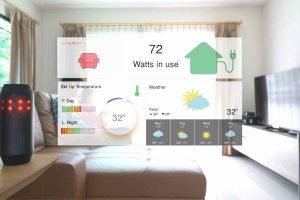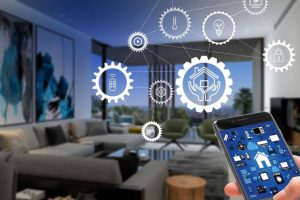The concept of home has transcended its traditional boundaries, morphing into a hub of interconnected technologies that enhance our daily lives. At the forefront of this transformation are smart home technologies, shaping the way we interact, manage, and experience our living spaces.
The Rise of Smart Home Technologies
The proliferation of smart home technologies has redefined the modern household. These technologies encompass a diverse spectrum of interconnected devices and systems designed to create an integrated and responsive living environment. From intelligent appliances to automated security systems, the landscape of smart home technologies is as diverse as it is innovative.
Key Elements of Smart Home Technologies
- IoT Connectivity: The backbone of smart homes lies in the Internet of Things (IoT), enabling seamless communication and interaction among devices. This connectivity forms the foundation for a synchronized ecosystem within the home.
- AI and Machine Learning: Artificial intelligence and machine learning algorithms empower devices to learn and adapt to user behavior. These technologies enable devices to anticipate needs, automate tasks, and optimize functionalities.
- Voice and Remote Control: Voice-activated assistants and remote control applications provide users with easy access and management of various smart devices. This accessibility enhances convenience and simplifies home management.
The Integrated Smart Home Experience
The beauty of smart home technologies lies in their integration. Picture a scenario where your morning routine triggers a series of events: the coffee machine starts brewing, the thermostat adjusts to your preferred temperature, and your favorite morning news plays on a smart display—all initiated with a simple command or a predefined schedule.
Enhancing Daily Life
Beyond convenience, these technologies enhance various facets of daily life:
- Efficiency and Energy Savings: Automated systems optimize energy usage, reducing utility bills and contributing to a more sustainable lifestyle.
- Security and Peace of Mind: Smart security systems offer real-time monitoring and alerts, providing a sense of security and control, whether at home or away.
- Personalization and Adaptability: Smart devices learn user preferences, offering personalized experiences that adapt to individual needs and routines.
Challenges and the Path Forward
Despite the incredible advancements, challenges persist. Ensuring interoperability among devices from different manufacturers and addressing concerns about data privacy and security remain crucial. Establishing industry standards and robust security measures is imperative for widespread adoption.
Looking Ahead
The future of connected living through smart home technologies is poised for remarkable growth. Continuous innovation, enhanced connectivity, and a focus on user experience will drive further evolution in this landscape. The integration of smart technologies will continue to shape homes into more intelligent, efficient, and responsive environments.
Conclusion
Smart home technologies have redefined the very fabric of our homes. By creating an interconnected and responsive ecosystem, these technologies offer convenience, efficiency, and security. As these innovations evolve, they promise a future where homes seamlessly adapt to our needs, enriching our lives in profound ways.














Add Comment